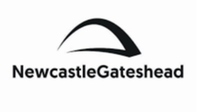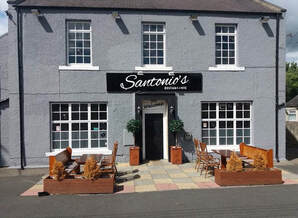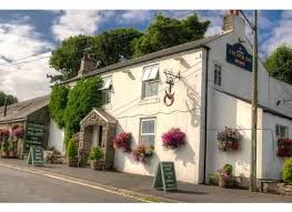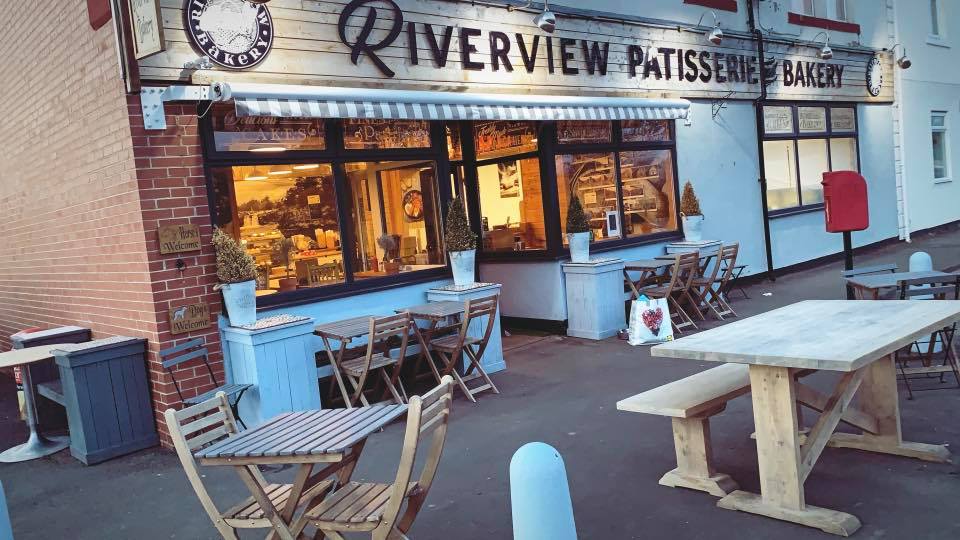CCTV Policy
1 Introduction
1.1 Policy statement
The safety and security of staff, contractors, guests and visitors at Vindomora Country Lodges is of paramount importance.
To support the Manager and Owner in maintaining a safe and secure environment, a Closed Circuit Television system (CCTV) is used on the site. This system has been installed and is used in accordance with the extant legislation referenced throughout this policy.
1.2 Status
Vindomora Country Lodges aims to design and implement policies and procedures that meet the diverse needs of our service and workforce, ensuring that none are placed at a disadvantage over others, in accordance with the Equality Act 2010. Consideration has been given to the impact this policy might have in regard to the individual protected characteristics of those to whom it applies.
This document and any procedures contained within it will form part of the Vindomora Country Lodges Terms and Conditions and will apply to all guets, visitors, staff and contractors to the site.
2 Scope
2.1 Who it applies to
This document applies to all employees, guests, visitors and contractors who are present on the Vindomora Country Lodges site.
2.2 Why and how it applies to them
This document has been produced to provide the necessary level of information regarding the rationale for the use of CCTV systems on the Vindomora Country Lodges site and how to respond to persons who make enquires as to the use of such systems, whilst also explaining how to respond to access requests for data generated by CCTV systems.
3 Definition of terms
3.1 Closed Circuit Television (CCTV)
CCTV (also referred to as a “surveillance camera system”) is a system used for the recording and viewing of visual images for surveillance purposes.
3.2 Undirected surveillance
The gathering of images and information which is not targeted at any one individual.
3.3 General Data Protection Regulation (GDPR)
A legal framework that sets guidelines for the collection and processing of personal information of individuals within the EU. The GDPR comes into effect on 25th May 2018.
3.4 Surveillance Camera Code of Practice 2013
The code details twelve guiding principles, which strike a balance between protecting the public and upholding civil liberties, as follows:
1. Use of a surveillance camera system must always be for a specified purpose which is in pursuit of a legitimate aim and necessary to meet an identified pressing need.
2. The use of a surveillance camera system must take into account its effect on individuals and their privacy, with regular reviews to ensure its use remains justified.
3. There must be as much transparency in the use of a surveillance camera system as possible, including a published contact point for access to information and complaints.
4. There must be clear responsibility and accountability for all surveillance camera system activities including images and information collected, held and used.
5. Clear rules, policies and procedures must be in place before a surveillance camera system is used, and these must be communicated to all who need to comply with them.
6. No more information and images should be stored than are strictly necessary for the stated purpose of a surveillance camera system, and such information and images should be deleted once their purposes have been discharged.
7. Access to retained images and information should be restricted and there must be clearly defined rules on who can gain access and for what purpose such access is granted; the disclosure of images and information should only take place when it is necessary for such a purpose or for law enforcement reasons.
8. Surveillance camera system operators should consider any approved operational, technical and competency standards relevant to a system and its purpose, and work to meet and maintain those standards.
9. Surveillance camera system images and information should be subject to appropriate security measures to safeguard against unauthorised access and use.
10. There should be effective review and audit mechanisms to ensure that legal requirements, policies and standards are complied with in practice, and regular reports should be published.
11. When a surveillance camera system is used in pursuit of a legitimate aim, and there is a pressing need for its use, it should then be used in the most effective way to support public safety and law enforcement with the objective of processing images and information of evidential value.
12. Any information used to support a surveillance camera system which is compared against a reference database for matching purposes should be accurate and kept up to date.
4 Code of practice and the GDPR
4.1 Complying with the GDPR
With immediate effect Vindomora Country Lodges will ensure compliance with the GDPR and that personal data will be:
• Processed lawfully, fairly and in a transparent manner in relation to the data subject (“lawfulness, fairness and transparency”)
• Collected for specified, explicit and legitimate purposes and not further processed in a manner that is incompatible with those purposes
• Adequate, relevant and limited to what is necessary in relation to the purposes for which it is processed
• Accurate and, where necessary, kept up to date; every reasonable step must be taken to ensure that personal data that is inaccurate, having regard to the purposes for which it is processed, is erased or rectified without delay
• Kept in a form that permits identification of data subjects for no longer than is necessary for the purposes for which the personal data is processed
• Processed in a manner that ensures appropriate security of the personal data, including protection against unauthorised or unlawful processing and against accidental loss, destruction or damage, using appropriate technical or organisational measures
5 Use of CCTV
5.1 Purpose
The purpose of CCTV at Vindomora Country Lodges is to:
• Protect the safety, security and well-being of staff, guests, visitors and cotractors
• Prevent and detect crime within the Vindomora Country Lodges site and may be used to support the prosecution of offenders
• Facilitate learning through reflection as a result of incidents occurring within the monitored areas
CCTV will not be used for any purpose other than those specified above.
5.2 Location
CCTV cameras are positioned in the following locations:
• Entrance – covering the entrance gate to the site.
• Reception – covering the communal area to the side.
• Reception – covering the car park area to the front.
• Reception – covering the communal roadway within the site.
• Reception – covering the stairs and site boundary wall next to the Vinovia Apartment.
• Road Entrance to the Vindomora Lodge.
All cameras are overtly positioned and do not impede on any private areas, for example bedrooms or hot tubs, within the site. Appropriate signage (using the template at Annex A) are positioned throughout the site in the following locations:
• Main Entrance
• Reception desk
• Road Entrance to the Vindomora Lodge.
• Various locations on the perimeter / boundary of the site.
5.3 Retention of images and information
A proportionate approach is used to inform retention periods; however, images and information acquired from the surveillance system at Vindomora Country Lodges will not be kept for longer than is necessary. There may, however, be occasions where it is necessary to retain images for a longer period, i.e. when a crime is being investigated.
The agreed retention period for CCTV images at Vindomora Country Lodges is 28 days. All images are saved on to the hard drive of the CCTV and they are automatically deleted after 28 days.
5.4 Accessing retained images and information
Access to retained images is restricted to the data controller at Vindomora Country Lodges, who is Craig Johnson, Manager. In their absence, James Teadale, Owner is authorised to access the retained images and information.
There may be, on occasion, requests by data subjects (individuals) to access images and information that is held about them. In accordance with the GDPR, all data subjects have a right to access their data and any supplementary information held by Vindomora Country Lodges. Data subjects have a right to receive:
• Confirmation that their data is being processed
• Access to their personal data
• Access to any other supplementary information held about them
The purpose for granting access to data subjects is to enable them to verify the lawfulness of the processing of data held about them.
When a request to access images and information is received, the data subject is to be advised to complete the Vindomora Country Lodges’s subject access request form. No fee can be charged for processing such requests. Data controllers must respond to all data subject access requests within one month of receiving the request (previous subject access requests had a response time of 40 days).
5.5 Third-party requests for access to images and information
Requests may be received from third parties to access images and information. Such instances include requests from solicitors to support either a claimant or defendant where a crime has been alleged. The data controller must be able to satisfy themselves that the person requesting the data has the authority of the data subject. The responsibility for providing the required authority rests with the third party and is usually in the form of a written statement or consent form, signed by the data subject.
5.6 Disposal of images and information
As stated in paragraph 5.3, images and information are stored for 28 days, after which they are deleted. The deletion process is:
• The system is set up for a rolling programme 28 days recording e.g. images recorded on 01/03/2018 will be deleted and recorded over on 29/03/2018.
5.7 Complaints
Should a guest, visitor or contractor have cause to complain about the Vindomora Country Lodges CCTV system, the data controller should be contacted. Guests, visitors and contractors are to be advised that complaints will be processed in accordance with Vindomora Country Lodges Terms and Conditions policy.
5.8 Access register
The template at Annex B is to be used to record all access to the CCTV system.
5.9 Audit
The template at Annex C is to be used to audit the CCTV system at Vindomora Country Lodges.
6 Summary
CCTV systems are valuable tools which enhance the safety and well-being of guests at Vindomora Country Lodges and are an increasingly common sight in holidays parks, public areas and other business areas. With the introduction of the GDPR in May 2018, it is essential that the use of such systems and the staff who use them are compliant with the Regulation as well as complying with the Surveillance Camera Code of Practice 2013.
1.1 Policy statement
The safety and security of staff, contractors, guests and visitors at Vindomora Country Lodges is of paramount importance.
To support the Manager and Owner in maintaining a safe and secure environment, a Closed Circuit Television system (CCTV) is used on the site. This system has been installed and is used in accordance with the extant legislation referenced throughout this policy.
1.2 Status
Vindomora Country Lodges aims to design and implement policies and procedures that meet the diverse needs of our service and workforce, ensuring that none are placed at a disadvantage over others, in accordance with the Equality Act 2010. Consideration has been given to the impact this policy might have in regard to the individual protected characteristics of those to whom it applies.
This document and any procedures contained within it will form part of the Vindomora Country Lodges Terms and Conditions and will apply to all guets, visitors, staff and contractors to the site.
2 Scope
2.1 Who it applies to
This document applies to all employees, guests, visitors and contractors who are present on the Vindomora Country Lodges site.
2.2 Why and how it applies to them
This document has been produced to provide the necessary level of information regarding the rationale for the use of CCTV systems on the Vindomora Country Lodges site and how to respond to persons who make enquires as to the use of such systems, whilst also explaining how to respond to access requests for data generated by CCTV systems.
3 Definition of terms
3.1 Closed Circuit Television (CCTV)
CCTV (also referred to as a “surveillance camera system”) is a system used for the recording and viewing of visual images for surveillance purposes.
3.2 Undirected surveillance
The gathering of images and information which is not targeted at any one individual.
3.3 General Data Protection Regulation (GDPR)
A legal framework that sets guidelines for the collection and processing of personal information of individuals within the EU. The GDPR comes into effect on 25th May 2018.
3.4 Surveillance Camera Code of Practice 2013
The code details twelve guiding principles, which strike a balance between protecting the public and upholding civil liberties, as follows:
1. Use of a surveillance camera system must always be for a specified purpose which is in pursuit of a legitimate aim and necessary to meet an identified pressing need.
2. The use of a surveillance camera system must take into account its effect on individuals and their privacy, with regular reviews to ensure its use remains justified.
3. There must be as much transparency in the use of a surveillance camera system as possible, including a published contact point for access to information and complaints.
4. There must be clear responsibility and accountability for all surveillance camera system activities including images and information collected, held and used.
5. Clear rules, policies and procedures must be in place before a surveillance camera system is used, and these must be communicated to all who need to comply with them.
6. No more information and images should be stored than are strictly necessary for the stated purpose of a surveillance camera system, and such information and images should be deleted once their purposes have been discharged.
7. Access to retained images and information should be restricted and there must be clearly defined rules on who can gain access and for what purpose such access is granted; the disclosure of images and information should only take place when it is necessary for such a purpose or for law enforcement reasons.
8. Surveillance camera system operators should consider any approved operational, technical and competency standards relevant to a system and its purpose, and work to meet and maintain those standards.
9. Surveillance camera system images and information should be subject to appropriate security measures to safeguard against unauthorised access and use.
10. There should be effective review and audit mechanisms to ensure that legal requirements, policies and standards are complied with in practice, and regular reports should be published.
11. When a surveillance camera system is used in pursuit of a legitimate aim, and there is a pressing need for its use, it should then be used in the most effective way to support public safety and law enforcement with the objective of processing images and information of evidential value.
12. Any information used to support a surveillance camera system which is compared against a reference database for matching purposes should be accurate and kept up to date.
4 Code of practice and the GDPR
4.1 Complying with the GDPR
With immediate effect Vindomora Country Lodges will ensure compliance with the GDPR and that personal data will be:
• Processed lawfully, fairly and in a transparent manner in relation to the data subject (“lawfulness, fairness and transparency”)
• Collected for specified, explicit and legitimate purposes and not further processed in a manner that is incompatible with those purposes
• Adequate, relevant and limited to what is necessary in relation to the purposes for which it is processed
• Accurate and, where necessary, kept up to date; every reasonable step must be taken to ensure that personal data that is inaccurate, having regard to the purposes for which it is processed, is erased or rectified without delay
• Kept in a form that permits identification of data subjects for no longer than is necessary for the purposes for which the personal data is processed
• Processed in a manner that ensures appropriate security of the personal data, including protection against unauthorised or unlawful processing and against accidental loss, destruction or damage, using appropriate technical or organisational measures
5 Use of CCTV
5.1 Purpose
The purpose of CCTV at Vindomora Country Lodges is to:
• Protect the safety, security and well-being of staff, guests, visitors and cotractors
• Prevent and detect crime within the Vindomora Country Lodges site and may be used to support the prosecution of offenders
• Facilitate learning through reflection as a result of incidents occurring within the monitored areas
CCTV will not be used for any purpose other than those specified above.
5.2 Location
CCTV cameras are positioned in the following locations:
• Entrance – covering the entrance gate to the site.
• Reception – covering the communal area to the side.
• Reception – covering the car park area to the front.
• Reception – covering the communal roadway within the site.
• Reception – covering the stairs and site boundary wall next to the Vinovia Apartment.
• Road Entrance to the Vindomora Lodge.
All cameras are overtly positioned and do not impede on any private areas, for example bedrooms or hot tubs, within the site. Appropriate signage (using the template at Annex A) are positioned throughout the site in the following locations:
• Main Entrance
• Reception desk
• Road Entrance to the Vindomora Lodge.
• Various locations on the perimeter / boundary of the site.
5.3 Retention of images and information
A proportionate approach is used to inform retention periods; however, images and information acquired from the surveillance system at Vindomora Country Lodges will not be kept for longer than is necessary. There may, however, be occasions where it is necessary to retain images for a longer period, i.e. when a crime is being investigated.
The agreed retention period for CCTV images at Vindomora Country Lodges is 28 days. All images are saved on to the hard drive of the CCTV and they are automatically deleted after 28 days.
5.4 Accessing retained images and information
Access to retained images is restricted to the data controller at Vindomora Country Lodges, who is Craig Johnson, Manager. In their absence, James Teadale, Owner is authorised to access the retained images and information.
There may be, on occasion, requests by data subjects (individuals) to access images and information that is held about them. In accordance with the GDPR, all data subjects have a right to access their data and any supplementary information held by Vindomora Country Lodges. Data subjects have a right to receive:
• Confirmation that their data is being processed
• Access to their personal data
• Access to any other supplementary information held about them
The purpose for granting access to data subjects is to enable them to verify the lawfulness of the processing of data held about them.
When a request to access images and information is received, the data subject is to be advised to complete the Vindomora Country Lodges’s subject access request form. No fee can be charged for processing such requests. Data controllers must respond to all data subject access requests within one month of receiving the request (previous subject access requests had a response time of 40 days).
5.5 Third-party requests for access to images and information
Requests may be received from third parties to access images and information. Such instances include requests from solicitors to support either a claimant or defendant where a crime has been alleged. The data controller must be able to satisfy themselves that the person requesting the data has the authority of the data subject. The responsibility for providing the required authority rests with the third party and is usually in the form of a written statement or consent form, signed by the data subject.
5.6 Disposal of images and information
As stated in paragraph 5.3, images and information are stored for 28 days, after which they are deleted. The deletion process is:
• The system is set up for a rolling programme 28 days recording e.g. images recorded on 01/03/2018 will be deleted and recorded over on 29/03/2018.
5.7 Complaints
Should a guest, visitor or contractor have cause to complain about the Vindomora Country Lodges CCTV system, the data controller should be contacted. Guests, visitors and contractors are to be advised that complaints will be processed in accordance with Vindomora Country Lodges Terms and Conditions policy.
5.8 Access register
The template at Annex B is to be used to record all access to the CCTV system.
5.9 Audit
The template at Annex C is to be used to audit the CCTV system at Vindomora Country Lodges.
6 Summary
CCTV systems are valuable tools which enhance the safety and well-being of guests at Vindomora Country Lodges and are an increasingly common sight in holidays parks, public areas and other business areas. With the introduction of the GDPR in May 2018, it is essential that the use of such systems and the staff who use them are compliant with the Regulation as well as complying with the Surveillance Camera Code of Practice 2013.













